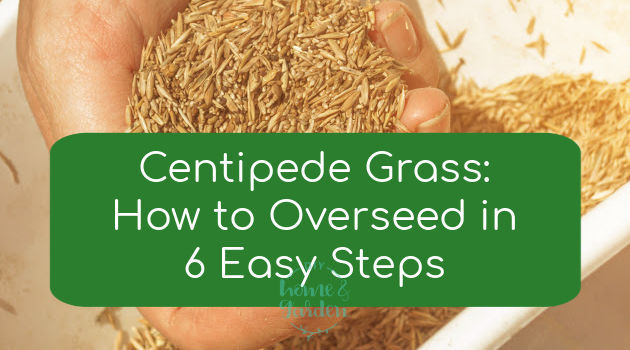Pet urine damage can cause unsightly patches of dead, brown, yellowed, or withered grass. The usual culprit taking the blame for any pet urine spot is a dog. However, cats peeing in the same place repeatedly can also kill your grass.
This article will explain the three steps you should take to repair this damage. Furthermore, it will outline some measures to prevent the damage from happening all over again. We will provide you answers to the most frequently asked questions about dog pee spots on the lawn, including the following:
- What causes pet urine lawn damage?
- How do you fix grass damage from dog urine?
- Does grass recover from dog urine?
- Does cat pee damage lawns?
- How do I stop urine spots on my lawn?
- How can I prevent pet urine from damaging my grass?
What Causes Pet Urine Lawn Damage?
First, let’s look at what causes pet urine lawn damage.
An article published by Purdue University’s Agriculture Extension Agency explains that the urine of any animal can kill otherwise healthy grass. They note that this can include deer, foxes, or even geese. However, they confirm that pets, primarily dogs or cats, cause the most aggravation for homeowners.
Pet urine is high in nitrogen, explains McGill University. That’s because both dogs and cats consume a protein-rich diet that natural production of nitrogen during the digestive process. Yes, retail fertilizers contain nitrogen to help you “green up” your lawn. But as with all things in life, too much of a good thing is harmful. So when your pet “goes” in the same preferred spot over and over again, the residual effect can cause those dead patches to appear.
Does Cat Pee Damage Lawns?
The Purdue article confirms that cat urine can damage your grass. However, they also explain that cats generally prefer to take care of their “business” in gravelly or sandy locations, not the lawn. Thus, this leaves dogs bearing the brunt of the blame for this problem.
Does Grass Recover From Dog Urine?
The answer to this is both yes and no. Sounds confusing? Here’s the fact. Yes, you can repair dog pee spots in the yard. But generally, pet urine damage will not grow back naturally unless you intervene.
How Do You Fix Grass Damage From Dog Urine?
You can repair grass damage resulting from cat or dog urine by following three relatively easy (albeit time-consuming) steps:
- Get rid of the damaged patch of lawn: Remove the damaged grass if the spot is large or the harm is extensive. You might need to scrape away the top layer of the property with a shovel. However, you can use the tines of a fork for scratching away minor damage and “oversees” instead of altogether growing a new section of grass.
- Sow new seed: Choose a grass seed appropriate for your local growing conditions. Carefully check the bag to see if the seed you choose grows in shady or sunny spots, and keep that in mind, as well. Water the new grass according to the seed company’s instructions on the bag. Some grass species take more water than others!
- Prevent reoccurrence: All the careful tending in the world means nothing if your beloved pet causes the same problem all over again!
Many gardening supply purveyors offer “dog urine repelling” products. As a lifelong pet owner and gardener, I will admit that these have literally never worked for me. Ever. The only thing that ever works for me is replacing the grass and retraining my dog.
As I researched the facts for this article, I realized that the Purdue article I mentioned earlier confirmed this. They say, “Some commercially available products claim they can repel animals from urinating on particular areas. However, these products have not been proven to be effective.”
How Do I Stop Pet Urine Spots on My Lawn?
If your pet was the culprit peeing on your lawn, consider making behavioral changes. Here are some things you can try:
- Ensure your dog or cat drinks enough water. Inadequate water intake can lead to more strongly concentrated nitrogen in their urine. Besides that, hydration is just as important in pets as in humans. In fact, this could be a sign of a health need you accidentally overlooked.
- Walk your dog on a leash–away from your grass! Take your dog on a stroll through your neighborhood, and try not to let them pee in the same place. Because all you will do if you let them do their business on the same spot in the neighbor’s yard is cause them a headache.
- Set up a specific place in your yard for your dog to pee, then take them to that area on lead. A designated rock or a decorative fire hydrant will look really awesome to a male dog. For a female, find a patch of grass behind a shed or out of your line of sight.
Set up a small sandpit if you have a cat, and she will find it irresistible. However, one caution is that all the cats in your neighborhood will also love it.
How Can I Prevent Pet Urine From Damaging My Grass?
Besides changing your pet’s behavior, you can also act to boost the health of your grass itself. These common-sense yard design tips include the following:
- Promote a healthy lawn by cutting grass at a higher blade height.
- Keep your property well-watered, especially during the hot summer months or during a period of drought.
- Rinse off the grass immediately after your dog urinates.
- Overseed your lawn in the early fall every year.
- Keep your grass free of dandelions and other weeds so that the grass does not compete for nourishment.
The Takeaway: You Can Fix Pet Urine Damage, But You Must Also Prevent the Reoccurrence
It is possible to fix the damage caused by pet urine. Although fixing it is an easy job, keeping it pristine after you restore it takes time, retraining your dog, and a commitment to making a healthier lawn. Please feel free to share it with us on social media if you have another suggestion. And until the next article, have a happy DIY day.



